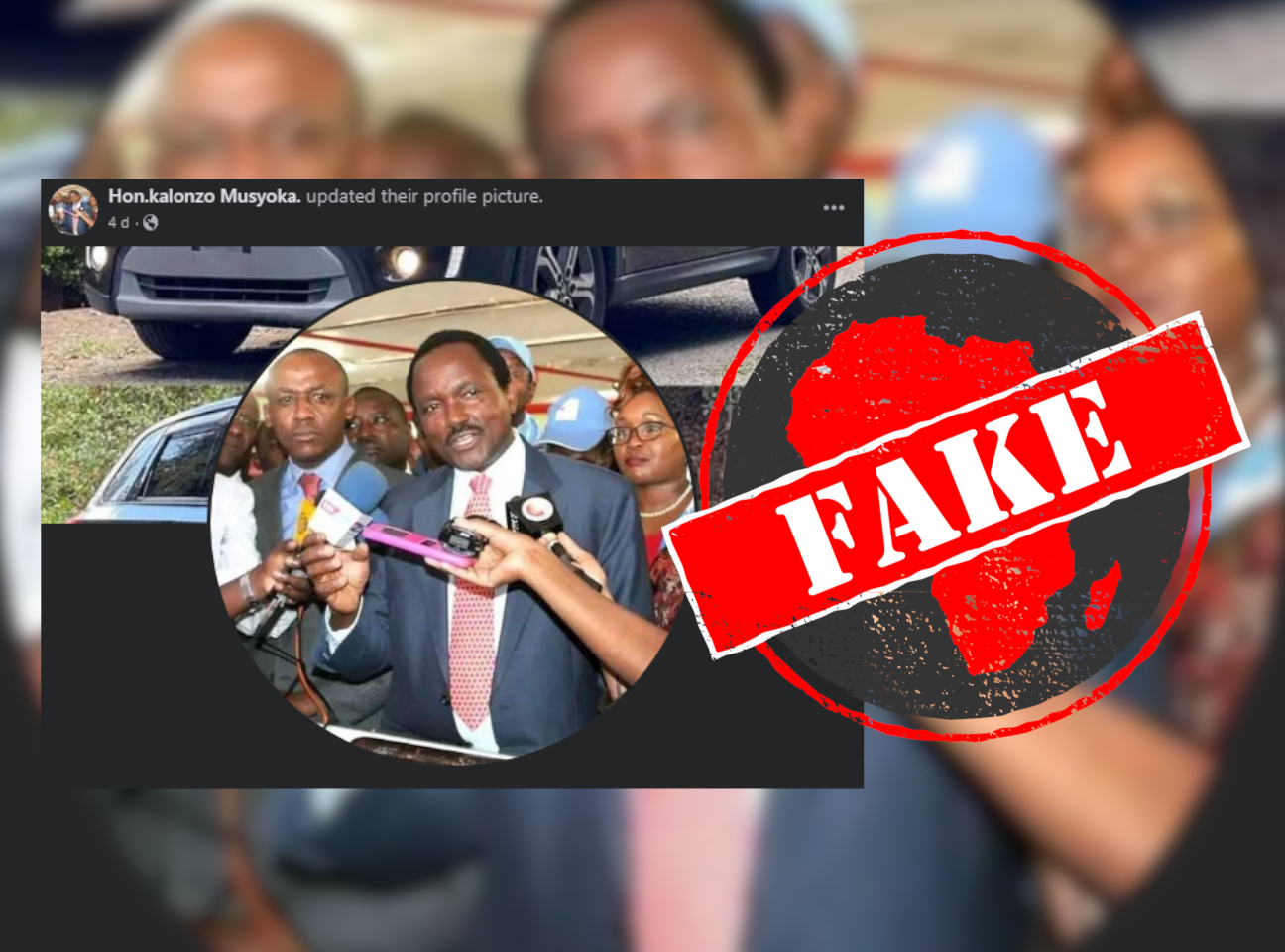IN SHORT: Hardly a day goes by where we don’t come across Facebook pages out of Kenya, falsely claiming to belong to public figures. This page, with the name and photos of opposition politician Kalonzo Musoka, is also not to be trusted.
The Facebook page Hon.kalonzo Musyoka would have you believe it’s run by Kalonzo Musyoka, a prominent Kenyan opposition politician and the party leader for Wiper Democratic Movement.
The page uses the name and photos of the politician.
Its posts cover a range of contentious issues in Kenya. One, dated 19 March 2023, reads: “Lunch tutakula state house kesho.”
This mix of English and Kiswahili translates as: “We will have our lunch at state house tomorrow.”
The post seems to be in reference to Azimio La Umoja One Kenya coalition leader Raila Odinga’s declaration on the same date. He said he would lead his supporters in a march to the State House on 20 March to reclaim what he said was his stolen election victory. Musyoka’s party is in the coalition. State House is the seat of the Kenyan presidency.
Odinga lost the 9 August 2022 election to incumbent president William Ruto. He rejected the results and has said Ruto's government is illegitimate.
Another post on the Musyoka page, from 22 March, makes fun of a suggestion by Kenyan agriculture cabinet secretary Mithika Linturi that Kenyans should eat rice, potatoes and other foods since there is a shortage of maize. Maize flour is used to make ugali, a staple food for many Kenyans.
The page’s posts have attracted likes and comments in the thousands. But is it legit?

Signs of fake Facebook page
The Facebook “page transparency” section of this page shows it was created on 30 March 2021 but under the name “Motari KE”. On 2 June 2022, the name changed to “Hon.kalonzo Musyoka”. This is the first suspicious sign.
We also noted the writing style is largely casual, often featuring a mix of Kiswahili and English and even emoji. This would be unusual for an established politician like Musyoka. Senior politicians in Kenya usually use either well-written English or Kiswahili in their social media posts, reserving casual language for political rallies.
The posts’ poor grammar is another sign the page could be fake.
We copied some tweets from Musyoka's verified Twitter account and searched for them on Facebook. They helped us locate his official Facebook page Kalonzo Musyoka, since it features similar posts.
This page was created on 4 March 2010 and has never changed its name. It has over 368,000 followers. The posts on his Facebook and Twitter account are largely similar and consistent.
It is unlikely that Musyoka would operate two Facebook accounts with different posts. This is an imposter page and posts on or by it should be ignored.
Republish our content for free
For publishers: what to do if your post is rated false
A fact-checker has rated your Facebook or Instagram post as “false”, “altered”, “partly false” or “missing context”. This could have serious consequences. What do you do?
Click on our guide for the steps you should follow.
Publishers guideAfrica Check teams up with Facebook
Africa Check is a partner in Meta's third-party fact-checking programme to help stop the spread of false information on social media.
The content we rate as “false” will be downgraded on Facebook and Instagram. This means fewer people will see it.
You can also help identify false information on Facebook. This guide explains how.


Add new comment